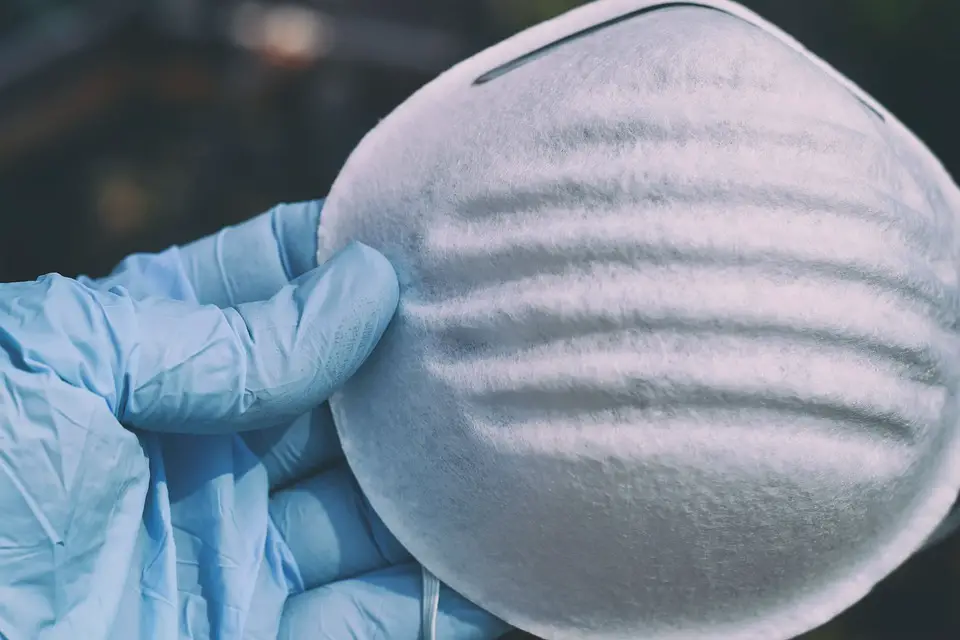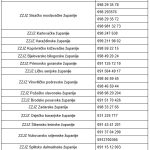
With the recent alarming developments in regard to the new coronavirus in Zadar, Croatia needs to ask the question of just what summer in Croatia will look like this year with the re-emergence of the virus among the population. While small pockets of infection are expected, just what will we do if things begin to go south yet again?
As Ana Blaskovic/Poslovni Dnevnik writes on the 23rd of June, 2020, the re-introduction of the original very rigorous measures would lead to an excessive economic blow to all companies and workers, warned the head of the Croatian Chamber of Commerce (HGK).
Summer in Croatia is under threat, just as were beginning to feel a little bit more optimistic that the new coronavirus might have seasonal tendencies, but it seems that we can’t afford to relax too much yet.
The ”period of the opening up of the economy” or whatever euphemism was used instead of tempting fate and the second wave of the pandemic, the fact of the matter is that the number of people infected with the new coronavirus is rising again after a few weeks of relative ”peace”.
So far, Zagreb and its surroundings are in the lead, just as they were at the very beginning, but eight Croatian counties recorded new infections on Monday. The debacle that the tennis tournament in Zadar turned into showed that Croatia, as ”coronavirus free” country, is nothing more than a fake utopian image that was drawn up quickly before the elections for tourist purposes.
Croatia is facing parliamentary elections, but also the choice of whether the state will enter into a new lockdown or, more realistically, attempt to merely coexist with the new coronavirus.
Some generally do not believe in the new sharp closure of the economy once again, at least not within the existing epidemiological picture. Another lockdown is not realistic, Zeljko Lovrincevic from the Institute of Economics believes.
“Croatia must prepare for a ”mini corona party” this summer with all of the consequences that follow from that, or social and economic chaos awaits it in the autumn,” says Lovrincevic. He adds that this is a reality that stems from the structure of the economy, which primarily lives from services, and not production.
“The National Civil Protection Headquarters tacitly understood this, but now it has a problem of perception and in explaining it to people because until yesterday, the image of Croatia as a country without disease and low mortality was being built, unlike the situation in the region, and indeed in the rest of the world,” he says.
He believes that after an instinctive reaction of closing Croatia’s borders in the first wave, which dealt a blow to the economy and proved to be a totally unsustainable solution in the long-run, it is now necessary to try to coexist with coronavirus, but the success of that all depends on collective discipline.
How much room there is for progress is clearly illustrated by the speed with which, in a couple of weeks without newly infected people, maintaining a distance, wearing masks and using disinfectants were simply forgotten by many people (but also by politicians and even, sadly, by some epidemiologists).
Luka Burilovic: We believe that it is possible to create a model that will respect both health protection measures and the needs of the functioning of the economy.
“In the event of a second wave, we shouldn’t sharply abolish all regular functions and ways of doing business again. The measures need to be more measured in terms of allowing as much economic activity of all our companies as possible. The reintroduction of the original rigorous measures would lead to an excessive economic blow to all companies and workers. We believe that it’s possible to create a model that will respect both health protection measures and the needs of the functioning and openness of the economy,” believes the President of the Croatian Chamber of Commerce, Luka Burilovic.
In addition to adhering to the rules, the transition to the “new normal” will depend on political calculations.
HDZ Vice President Ivan Anusic told Novi list that “there will be no imprisonment or quarantine”, but that an election on July the 5th is indeed possible. The question of testing is also one that causes issues. How can such a small country that has to open its borders and attract tourists be carrying out so few tests for coronavirus? “Test, test, test” – said the World Health Organisation at the beginning of the pandemic. One has to ask what happened to that mantra here.
Croatian epidemiologists are not changing the view that there is no need for more testing despite the millions of foreigners being lured to save the Croatian tourist season. Croatia performs only 17,000 tests per million inhabitants, incomparably less than European leaders such as Luxembourg (211 thousand) or Denmark (151 thousand), and even when compares to neighbouring countries such as Slovenia (44 thousand), Serbia (37 thousand) and even Bosnia and Herzegovina (25 thousand).
For more on coronavirus, follow our dedicated section.










